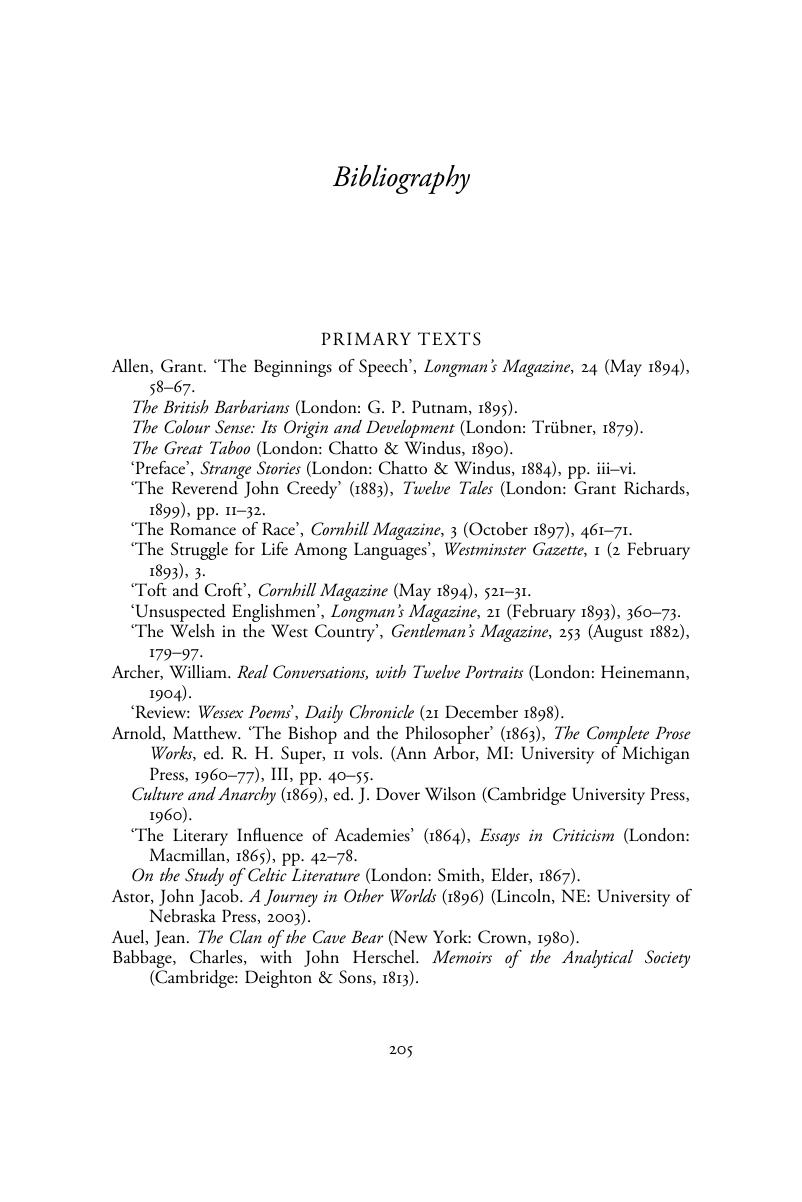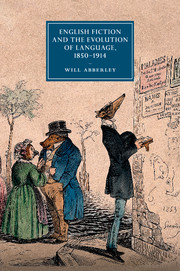Book contents
- English Fiction and the Evolution of Language, 1850–1914
- Cambridge Studies in Nineteenth-Century Literature and Culture
- English Fiction and the Evolution of Language, 1850–1914
- Copyright page
- Contents
- Acknowledgements
- Introduction: language under a microscope
- Chapter 1 The future of language in prophetic fiction
- Chapter 2 Primitive language in imperial, prehistoric and scientific romances
- Chapter 3 Organic orality and the historical romance
- Chapter 4 Instinctive signs: nature and culture in dialogue
- Conclusion: widening the lens
- Notes
- Bibliography
- Index
- Cambridge Studies In Nineteenth-Century Literature And Culture
- References
Bibliography
Published online by Cambridge University Press: 05 June 2015
- English Fiction and the Evolution of Language, 1850–1914
- Cambridge Studies in Nineteenth-Century Literature and Culture
- English Fiction and the Evolution of Language, 1850–1914
- Copyright page
- Contents
- Acknowledgements
- Introduction: language under a microscope
- Chapter 1 The future of language in prophetic fiction
- Chapter 2 Primitive language in imperial, prehistoric and scientific romances
- Chapter 3 Organic orality and the historical romance
- Chapter 4 Instinctive signs: nature and culture in dialogue
- Conclusion: widening the lens
- Notes
- Bibliography
- Index
- Cambridge Studies In Nineteenth-Century Literature And Culture
- References
Summary

- Type
- Chapter
- Information
- English Fiction and the Evolution of Language, 1850–1914 , pp. 205 - 225Publisher: Cambridge University PressPrint publication year: 2015



